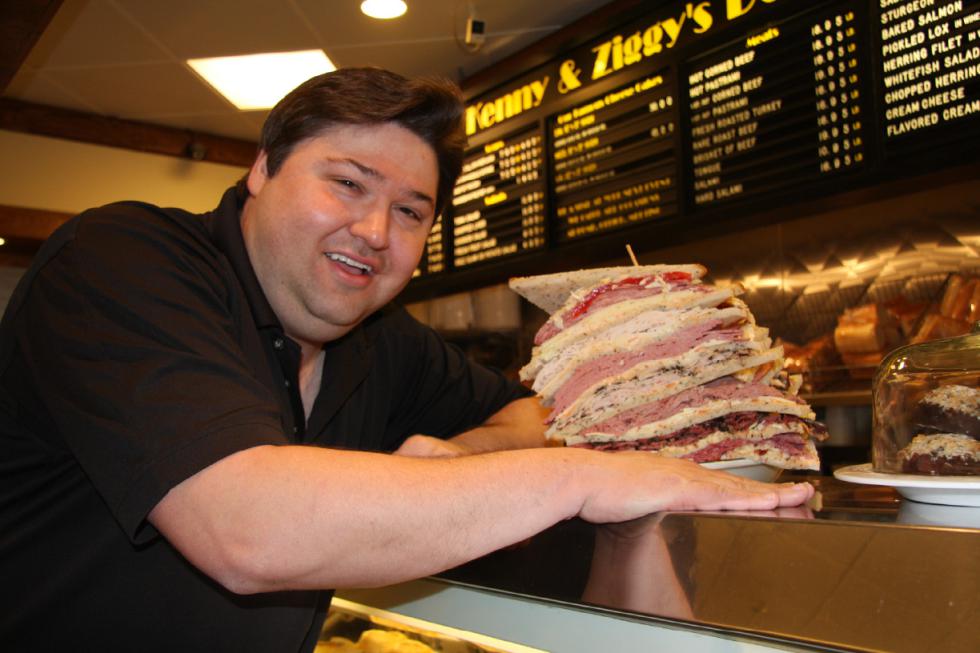When I first moved to the Valley in the late ’90s, it was from Brooklyn, where I had spent a few post-college years in a vain attempt at being worldly. I had gone there imagining I would dash off a book and get discovered (not necessarily in that order) and that the rest of my life would be a mix of cocktails, witty banter, and great fountain pens.
The reality, for me, was much less glamorous: a full-time job that let me pay for half of an apartment so far removed from Manhattan that I might as well have been living in Newark. There was little room or money for nightlife, but what there was, always was, food. New York’s great stew of cultures meant that there was always a great inexpensive meal to be had close by — my own neighborhood was filled with wonderful little Russian cafes that were a culinary revelation to a kid from Rhode Island. An earlier apartment was surrounded by great Latin American take-out places; friends of ours lived in an area awash in Indian restaurants.
But drill down to the basics of New York food, and most people will hit on one thing in particular: the New York deli. Part temple, part old-time medicine shop, the deli was a place that was both old-world and up-to-date, reminding us where we came from while embracing that American style of entrepreneurial originality. And, of course, they had pretty good sandwiches, too. Almost two decades after moving here, I still miss those sandwiches.
This week, Deli Man — a documentary film screening on Sunday at 2 p.m. at the Yiddish Book Center in Amherst — tells the story of one man’s remarkable career in the business. From director Erik Greenberg Anjou, this third film in a trilogy about Jewish culture (it was preceded by A Cantor’s Tale and The Klezmatics — On Holy Ground) focuses on Ziggy Gruber, who has built what is arguably the nation’s finest New York deli. The first sign that Gruber isn’t going to be your traditional deli man? His New York deli is in Houston.
But if the die-hards might scoff at that idea, Gruber has the bona fides: his grandfather owned the famed Rialto Deli on Broadway, where Gruber was working in the kitchen as a boy. Uncles owned other delis around New York. Like a pickle in brine, Gruber was immersed in deli culture.
Still, he tried to do something different by enrolling in a London culinary school. But a fateful trip with his father would change his course and steer him back to the deli counter. It was to the annual dinner of a delicatessen association, which had once boasted hundreds of members. By the time Gruber was there, it was down to a couple of dozen, and they, as Gruber recalls, were “all 60- and 70-year old people. I said to myself: ‘Who is going to perpetuate our food if I don’t do it?’ That was my calling. The next day I went back to my dad and my uncle and I said, ‘I’ve had enough of this fancy-shmancy business, I’m going back into the delicatessen business.’”
And so he did. After opening a deli in both New York and Los Angeles, he settled into his Houston venture over a decade ago and hasn’t looked back. To help tell this story of an American institution and one of its most unlikely success stories, Deli Man visits the delis that helped make the word such recognizable shorthand (Katz’s, the Carnegie, Canter’s) as well as some of the more famous deli connoisseurs out there (Jerry Stiller, Larry King, and Alan Dershowitz all chime in). Forget the popcorn and snacks from home — if you’re going to sneak anything into this screening, make sure it’s a pastrami on rye.•
Jack Brown can be reached at cinemadope@gmail.com.




